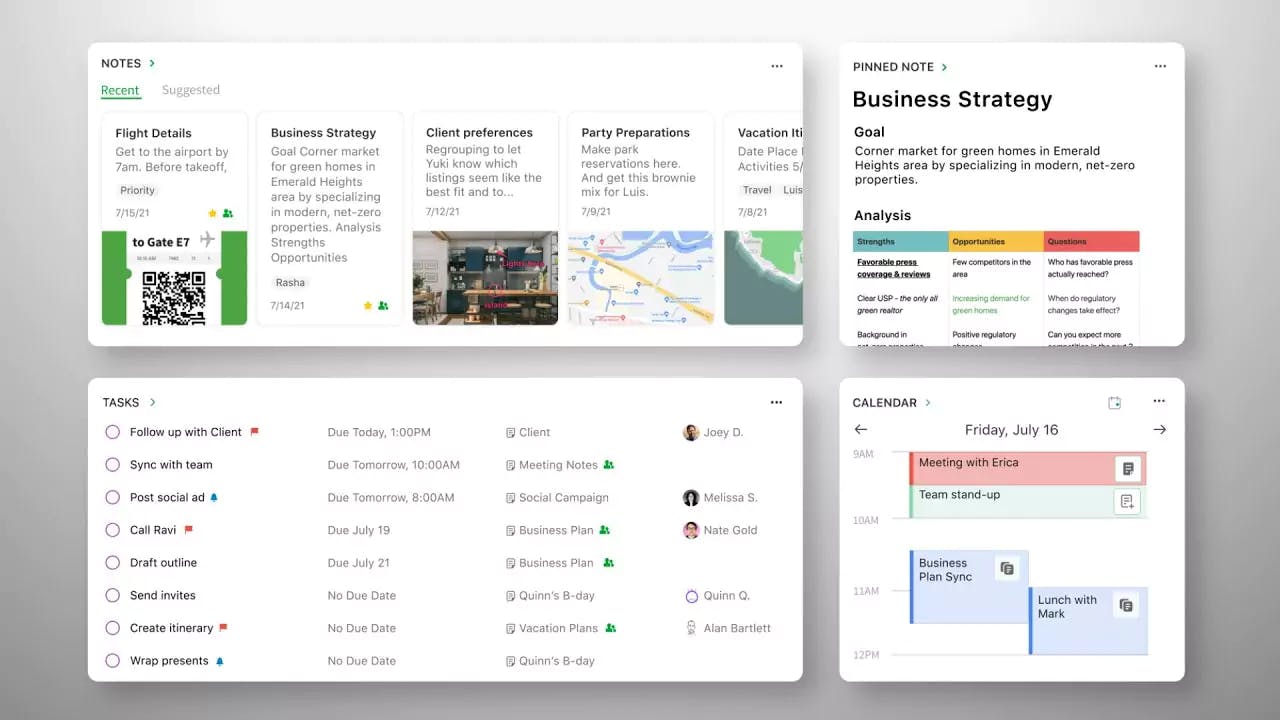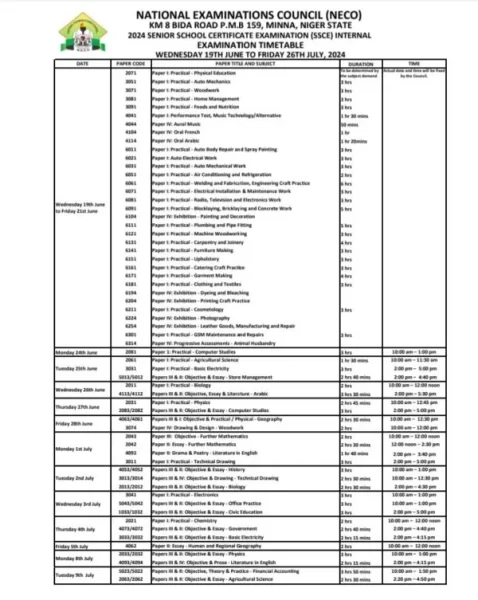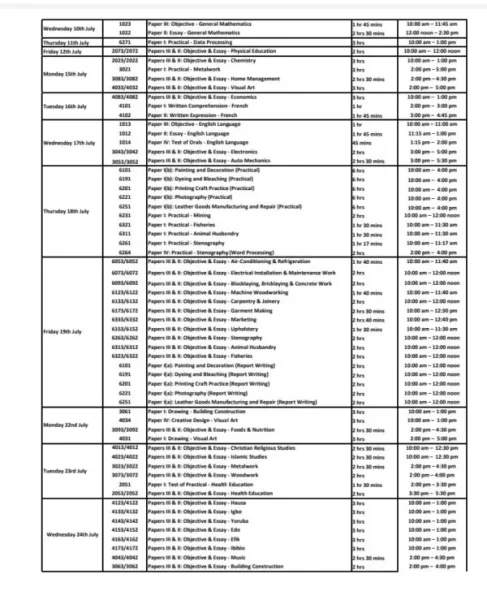Education
Five productivity apps for university students

Undergraduates are often faced with the challenge of managing stress that comes with attending lectures, assignments deadlines, projects, examinations and even their social life.
Here are five mobile and web-based apps that can help boost your academic productivity and keep you well organised every semester.
Evernote
As a note-taking app that takes a step further to synchronise your workflow on all your devices, Evernote allows students to seamlessly study and work on-the-go.
Students can also save formatted texts, voice memos, scanned handwritten notes, and web pages as notes on the app.
It is available both online and offline on iOS, Android, Microsoft Windows and macOS.
Google Drive
Google Drive allows you to multi-task and collaborate with others on group works or assignment. Its cloud storage also provides you with 15 gigabytes for free. You can edit formatted texts, spreadsheet, and slide presentation all from your Google Drive app.
Google Calendar
When you need a reminder for a test, assignment deadlines and maybe organise your reading habit, Google Calender is the app you should get.
Google Calender has a number of features that allows you schedule your school work, set reminders and consequently maximise your time.
It is available as a web-based app and on Android as well as iOS platforms.
Managing your online reading list can be a difficult task, but with Pocket, you can organise articles you read on the internet and study them at a more convenient time.
Saved articles are stored on users’ ‘Pocket list’ and can later be read offline.
Audible
If you ever get tired of reading lengthy texts, then you should consider Audible. It has a robust library focused on educational content.
With Audible, you can download recommended literature, source for additional school materials and listen to them on the go.
Education
ASUU threatens to embark on another nationwide strike

The Academic Staff Union of Universities (ASUU) may be gearing up for another nationwide strike if the brewing issues are not immediately addressed.
The president of the union, Prof. Emmanuel Osodeke on Monday, May 14, 2024, threatened that the union would go on an industrial action to protest against the absence of governing councils in all federal universities.
Osodeke made this known while speaking at a press conference at the ASUU national secretariat, Abuja.
He said the dissolution of the Governing Councils was against the principles guiding the existing universities.
ASUU also criticised the ‘nonchalant attitude of the Federal Government’ on matters that concern academics in Nigerian Federal Universities.
Education
UNILORIN unveils 40 new professors

The University of Ilorin (UNILORIN) has announced the promotion of 40 of its senior academic staff to the rank of professor.
According to the university’s bulletin issued on Monday, the elevation was approved by Tahir Mamman, the minister of education.
The publication stated that the 40 distinguished scholars were found to have excelled in the realms of teaching, research and community service, and subsequently promoted to the highest rank obtainable in the academia.
The breakdown of the beneficiaries of the promotion exercise shows that 11 of the new professors are from the Faculty of Agriculture.
The bulletin disclosed that two lecturers from the Faculty of Clinical Sciences were also elevated to the rank of professor, while the Faculty of Communication & Information Sciences also produced two new professors.
It added that the Faculty of Law produced one new Professor, while the Faculty of Life Sciences produced four new professors, among others.
See the list below:
Faculty of Agriculture:
- Sidiqat A. Aderinoye-Abdulwahab
- L. L. Adefalu
- F. O. Takim
- A. A. Badmos
- Foluke E. Sola-Ojo
- W. A. Jimoh
- M. I. Abubakar
- T. H. Aliyu
- R. O. Uddin II
- T. O. Amusa
- Mutiat A. Balogun
Faculty of Arts:
- K. M. U. Gbodofu
- Y. A. Abdullahi
- Abosede R. O. Babatunde
- Bolanle E. Arokoyo
- P. U. Nwosu
Faculty of Basic Medical Sciences:
- A. S. Alabi who teaches at the Department of Anatomy.
Faculty of Clinical Sciences:
- T. O. Olanrewaju
- O. A. M. Adesiyun.
Faculty of Communication & Information Science:
- Tinuke O. Oladele
- Saudat S. Abdulbaqi
Faculty of Education:
- O. O. Okoji
- Folakemi O. Adeniyi-Egbeola
- Florence O. Daramola
From the Faculty of Engineering and Technology:
- A. T. Ajiboye
- A. Y. Abdulrahman
- M. O. Sumonu
- Rasheedat M. Mahamood
- T. K. Ajiboye
Faculty of Law:
A. C. Onuora-Oguno
Education
SEE FULL LIST: NECO releases timetable for 2024 internal exam

The National Examination Council (NECO) has released its timetable for the 2024 internal Senior Secondary Schools Examination (SSCE) across the country.
The timetable was announced in a statement on Monday by Hajara Ali, the acting director of registration.
NECO said the examinations will run from June 19 to July 25, beginning with the practical papers.
The exam body also warned candidates against bringing in electronic communication gadgets including iPads, smart wrist watches, and glasses to examination centres.
“Where the time on the question paper differs from the time on this timetable, the time on the question paper should be strictly adhered to,” the statement reads in part.
“Bringing into the examination hall electronic communication gadgets (programmable calculators, mobile phones , ipads, tablets, smart wrist watches/glassess/pens, etc) are strictly prohibited.
“Candidates who do not sit for practical (paper 1) will not have result in the subject.”



-

 Entertainment5 days ago
Entertainment5 days agoTems announces release date for her debut album ‘Born In The Wild’
-

 Entertainment1 week ago
Entertainment1 week agoKanayo introduces first son to filmmaking (Video)
-

 Business1 week ago
Business1 week agoNERC reduces FX rate for calculating new tariff for Band A customers by 16.03%
-

 Crime1 week ago
Crime1 week agoNigerian vendor in UK, Musiliu Badejo jailed for selling toxic skin bleaching products
-

 Business1 week ago
Business1 week agoCBN directs banks to charge 0.5% cybersecurity levy on electronic transfer
-

 Business1 week ago
Business1 week agoNaira depreciates at parallel market, appreciates at official window
-

 Business1 week ago
Business1 week agoFive levies Nigerians pay for electronic transactions
-

 Entertainment1 week ago
Entertainment1 week agoPortable acquires luxury house in Lekki (Video)


















